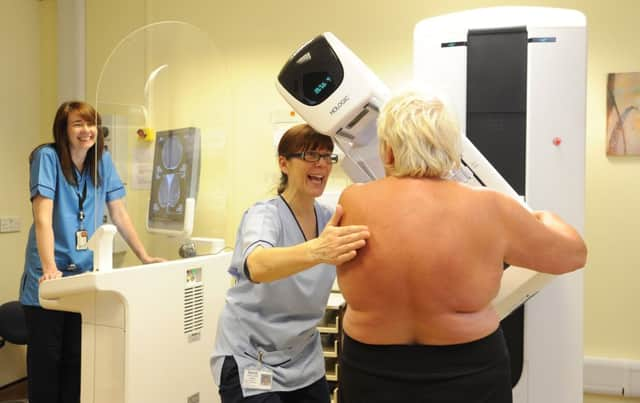Single gene could help to predict breast cancer risk


Changes within and around a single gene could help doctors to forecast the risk of breast cancer and predict a patient’s resistance to vital drugs, experts will tell a conference today.
The ESR1 gene provides the instructions for making oestrogen receptors, which are the molecules in cells that recognise oestrogen and allow the hormone to drive cancer growth. American scientists used new technology to pinpoint non-inherited mutations to the gene, which were significantly more common in secondary cancer – where the cancer has spread to another part of the body, such as the brain, the bone and the blood stream – than in primary breast cancer.
Advertisement
Hide AdAdvertisement
Hide AdThe team from Pittsburgh University, Pennsylavania, said that primary breast cancers containing ESR1 mutations could be an early indication that a tumour has the potential to develop resistance to anti-hormone treatments
Speaking ahead of today’s inaugural Breast Cancer Research Symposium, in London, lead author Dr Steffi Oesterreich said: “The ESR1 gene has a very important role in the process by which cancers spread from the breast to elsewhere in the body.
“Research on the way this gene mutates will help us to identify the cancers which will relapse, and also those which will not respond to our current treatment. It shows how, in the future, new extremely sensitive technologies could give us an ever more detailed picture of what is going on inside a patient’s breast cancer and how the cancer is responding to treatment.”
More than 4,600 Scots are diagnosed with breast cancer each year and it is the most commonly diagnosed cancer north of the Border.
In a separate study, researchers from Cambridge University identified five genetic changes which affect a woman’s risk of a developing particular types of breast cancer.
All of these inherited mutations were found near the ESR1 gene and are believed to change the amount of oestrogen receptors in a breast cell.
They also control three other nearby genes, not previously known to be involved in breast cancer.
Delyth Morgan, chief executive of Breast Cancer Now, said: “Both discoveries relating to the ESR1 gene show great potential to tailor treatment for patients and reveal more about the genetics of breast cancer risk. It is work such as this that will lead to steady improvement in the prevention, diagnosis and treatment of breast cancer.”